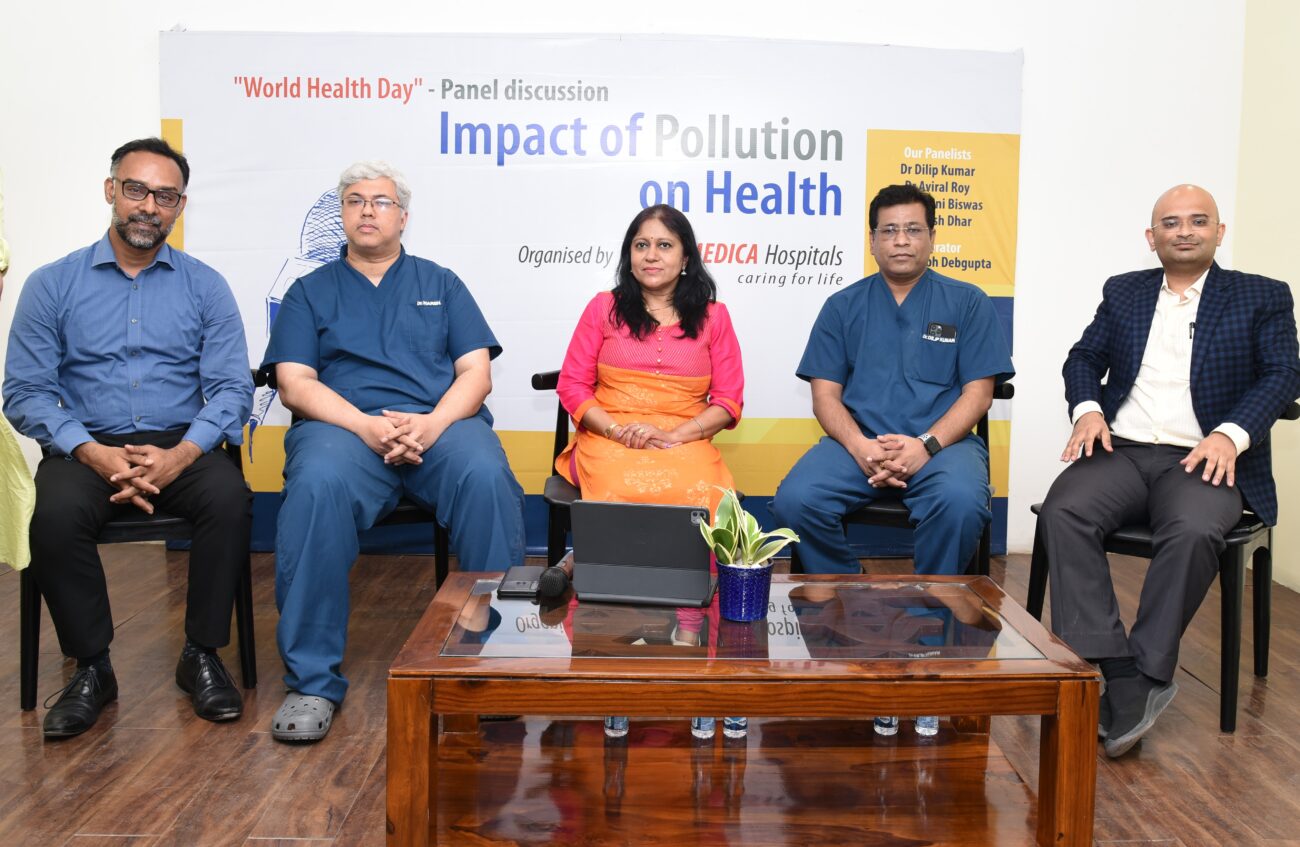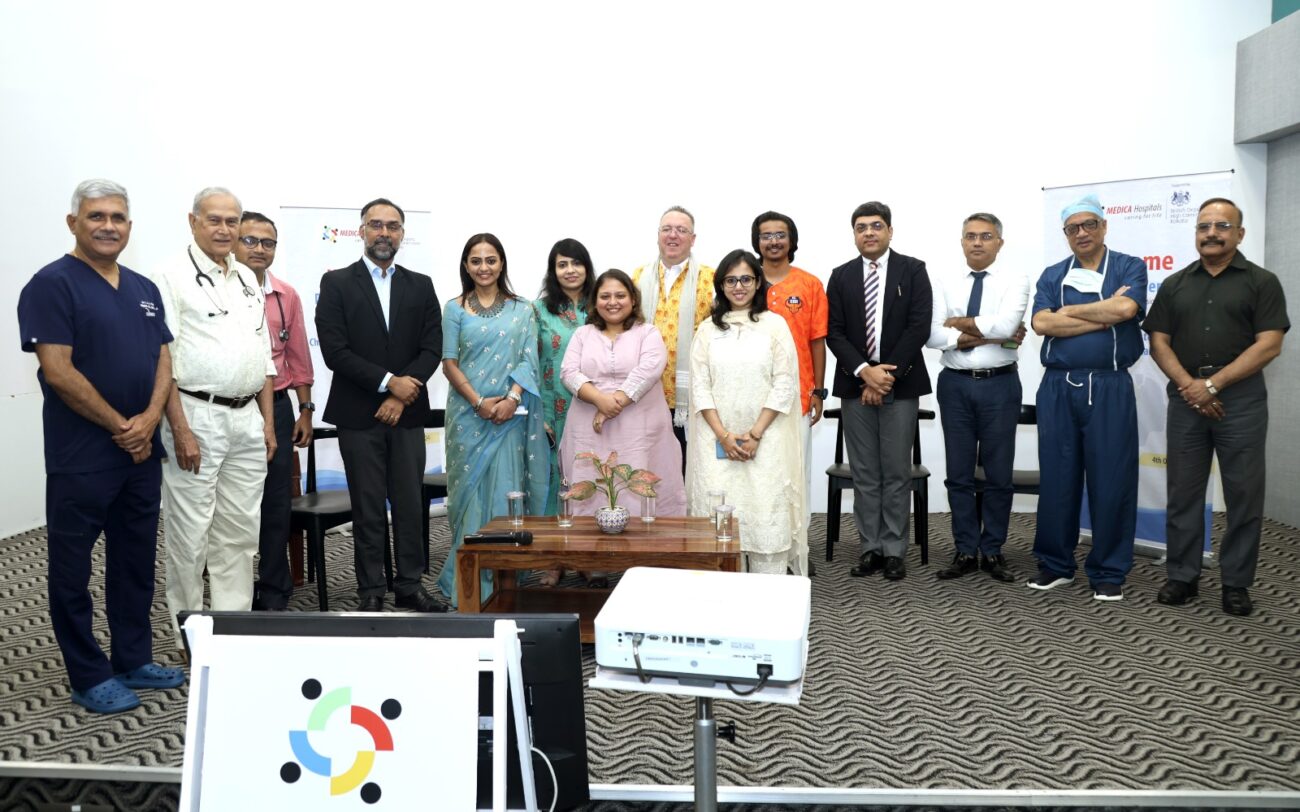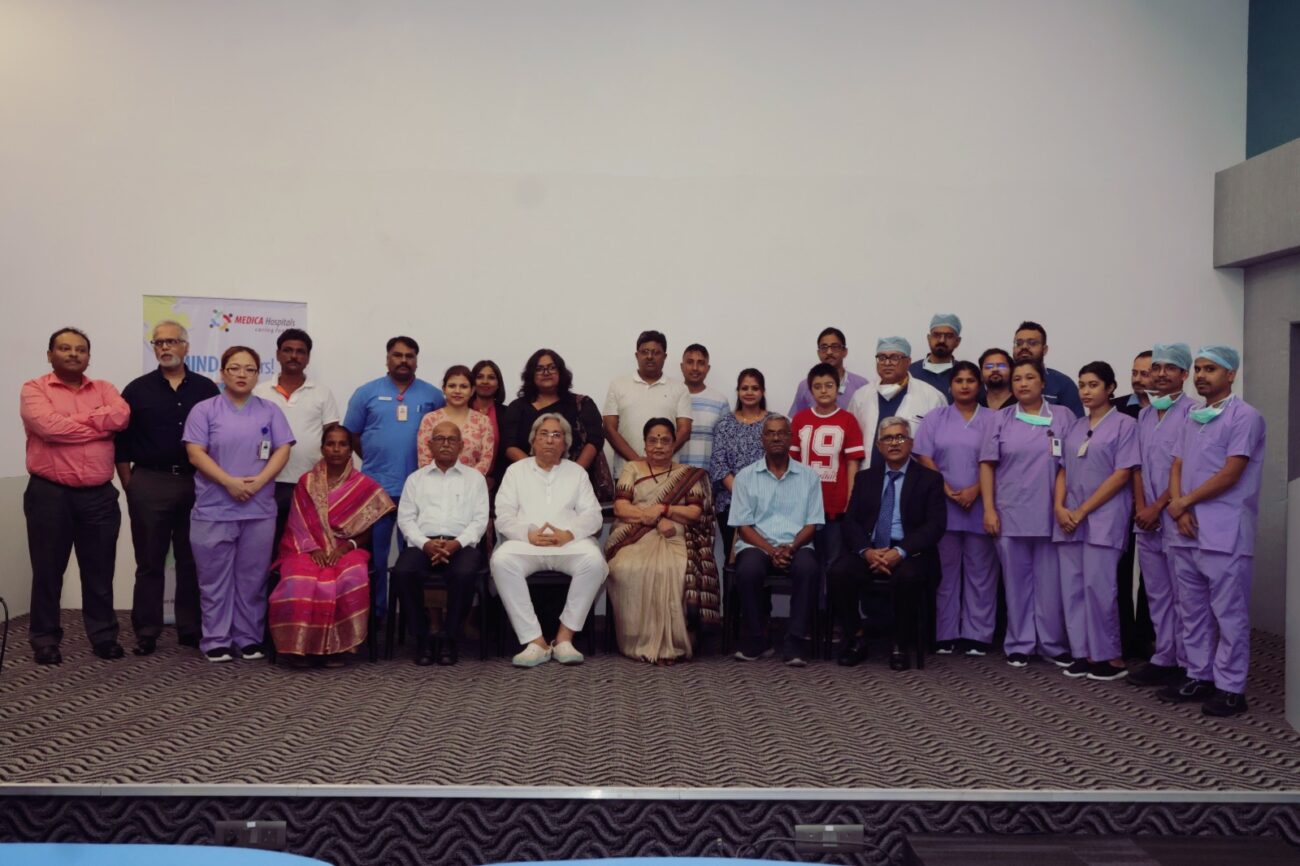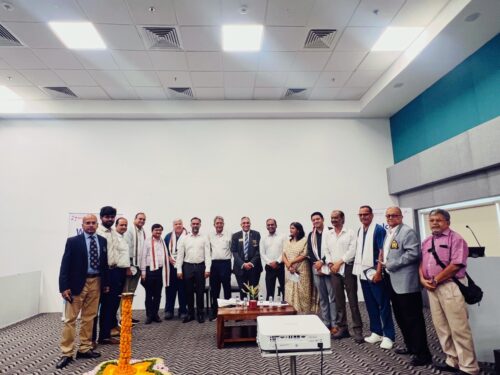Medica Superspecialty Hospital commemorates World Health Day by conducting a panel discussion on ‘Impact of Pollution on Health’ ~Billions of people still breathe unhealthy air – WHO~
On World Health Day, Medica Group of Hospitals, the largest private hospital chain in Eastern India, at its flagship facility Medica Superspecialty Hospital in Kolkata, organized a panel discussion program on ‘Impact of Pollution on

On World Health Day, Medica Group of Hospitals, the largest private hospital chain in Eastern India, at its flagship facility Medica Superspecialty Hospital in Kolkata, organized a panel discussion program on ‘Impact of Pollution on Health’ this Wednesday, April 6th, at Medica Superspecialty Hospital (Conference Room -7th Floor) from 2:30 pm onwards. April 7th of each year marks the celebration of World Health Day. Every year on this date, a theme is chosen that highlights an area of priority concern for WHO. In the face of the current pandemic, a polluted planet, and an increasing incidence of diseases, the theme for World Health Day 2022 is ‘Our Planet, Our Health’.
On the eve of World Health Day, Medica hosted a panel of specialty doctors for urgent action to eradicate pollution-borne diseases, health inequities, and ways to attain a better planet and health for all. At the panel, Dr. Dilip Kumar (Senior Cardiologist), spoke about ‘Air Pollution causing Heart blockage, leading to death’, Dr. Aviral Roy (Internal Medicine & Critical Care Specialist), highlighted some ‘major problems seen in Old and Young people due to pollution, Dr. Nandini Biswas (Respiratory Medicine Specialist), spotted the ‘Effects of Pollution in Lungs’ and Dr. Harsh Dhar (Oncologist, Head and Neck Surgeon), shared his experience in ‘Cancer caused due to various pollutions and environmental hazards’. The entire event was moderated by Mr. Ayanabh Debgupta (Co-founder and Joint Managing Director).
The hour-long panel discussion and the interactive session took the viewers through clinically oriented topics ranging from defining the diseases caused by Pollution to the technicalities of managing the same for the well-being.
Focusing on this year’s theme, Dr. Dilip Kumar, Senior Cardiologist, Medica Superspecialty Hospital, mentioned, “Pollution is an overlooked reason for mortality and air pollution is the fourth most cause for worldwide deaths. In terms of cardiovascular aspects, pollution can cause accelerated Atherosclerosis. Atherosclerosis is just like the hardening of vessels or blockage in the vessels. Due to atherosclerosis coronary arteries, peripheral arteries get blocked, which consequently leads to strokes and heart attacks. One most prominent symptom that develops due to pollution is hypertension which even leads to cardiac events, cardiac arrests, and heart failures. Besides, the heart can go into Arrhythmia, and sudden cardiac arrests can be caused due to pollutants. In the 1970s America brought an act i.e. The Clean Air act so that they could reduce their mortality rate by pollution by 70%. If the Americas can do then why can’t we Asians or the developing countries? The developed countries are somehow aware of the situation and working on that; however, for us, pollution is still a big problem. Around 6.5 million deaths are happening globally every year because of pollution and among the 6.5 million, 60% are due to cardiovascular diseases.”
Besides, Dr. Aviral Roy, Internal Medicine & Critical Care Specialist, Medica Superspecialty Hospital, shared a few findings that conveyed, “Pollution, including air pollution is a major problem for the average Indian citizen, and the average persons on the street. The higher amounts of pollution are not only linked to what we all are aware of, like Asthma, COPD, difficulty in breathing but also other problems, caused due to higher amounts of carbon dioxide, carbon
monoxide, and Sulphur dioxide that has direct effects on pregnant mothers and young children. Pollution not only causes problems with respiratory systems but also causes growth retardation, growth delay, and a decrease in playtime with the weakening of bones decreased strength, and stamina, which extends to adulthood. Hence, air pollution is a major problem not only for old people but also for young people and this is very often underappreciated.
Furthermore, Dr. Nandini Biswas, Respiratory Medicine Specialist, Medica Superspecialty Hospital, stated, “Pollution and its effect on our lives and the planet is a very relevant topic in our today’s day and the world and maybe it will have relevance for many more years to come. As far as our health is concerned, pollution has got a direct detrimental effect on our entire being and perhaps the most damaged and affected organs are our lungs. The air that we breathe in, contains particulates and pollutants that are inhaled through our breathing indirectly through our airways and our lungs, and the harmful effects are seen more pronounced within the respiratory system. COPD is a chronic obstructive lung disease, and it’s currently the 3rd leading cause of death in the world. However, very soon it will be the first leading cause of death in the world. In the western world, smoking is blamed to a large extent for COPD but in our nation, pollution is the major factor that drives COPD. Additionally, pollution is responsible for lung cancer; it not only causes general inflammation in the airways, but it can cause inflammation within our bodies as well. If we don’t take note of this now, ten or twenty years down the line, the world will face a severe crisis from which society may not be able to recover fully because at the end of the day, if society is not healthy, nothing else will be.”
Lastly, Dr. Harsh Dhar, Oncologist, Head and Neck Surgeon, Medica Superspecialty Hospital, added, “Pollution – unwanted waste released to air, water, and land by human activity – is the largest environmental cause of disease in the world today. It is responsible for an estimated 9.0 million premature deaths per year, enormous economic losses, erosion of human capital, and degradation of ecosystems. With the growing industrialization and lack of proper laws regulating chemical waste disposal, we stand the risk of exposure to chemical toxins. Of the most devastating elements of this pollution is that plastics take thousands of years to decay. Besides, these pollutants cause an increase in harmful algal blooms that produce toxins that accumulate in seafood. The ingestion of these toxins in humans can further cause Cancer, among many other harmful diseases. There is definite evidence that the incidence of cancer is rising and a certain proportion of this can be attributed to the rise in environmental toxins. The increasing air pollution in most of the Indian megacities over the last few decades and its consequential human health impacts (such as asthma and cardio-respiratory illness) has drawn prominent attention in recent years. The only way to be safe from these risks is to eat healthy foods, increase immunity, completely avoid processed foods as much as possible, stay hydrated, have safe household water storage, better hygiene measures, and limit the use of unknown chemicals, especially plastics.”
Medica always believed in spreading awareness to keep humans and the planet healthy and foster a movement to create societies focused on well-being. The maintenance and improvement of health must always be at the center of concern about the environment and sustainable development. Yet health rarely receives high priority in environmental policies and development plans, even though the quality of the environment and the nature of development are major determinants of health.
The panel discussion concluded after highlighting the priority area of concern in the current scenario and its effect and cure on human lives.






